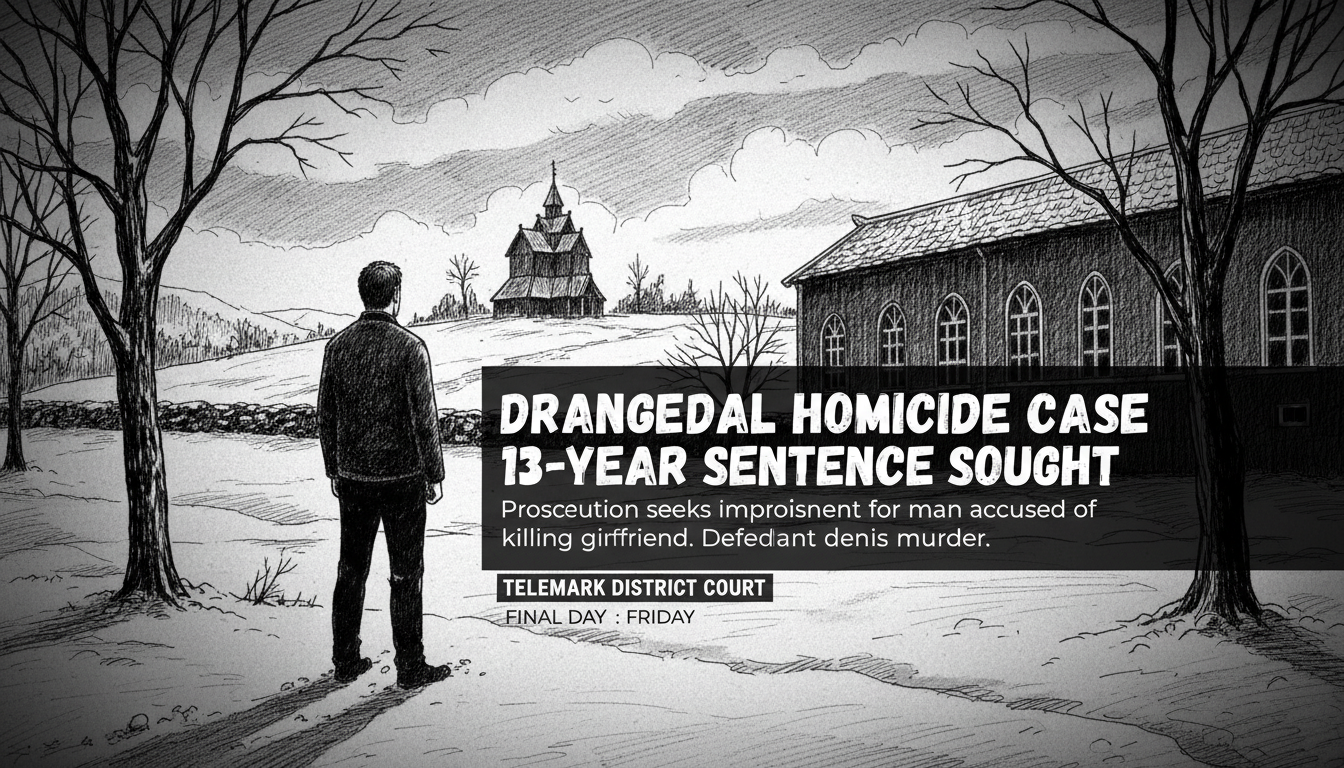Prosecutors have requested a 13-year prison sentence for a man accused of killing his girlfriend in southern Norway. The case concluded Friday in Nedre Telemark District Court after several days of proceedings.
The defendant, 48, denies killing Anette Marie Mikalsen or committing violence against her. He claims he hitchhiked home while believing she would follow on an electric scooter.
Mikalsen's body was found partially submerged in the Heldøla River in Drangedal on October 19. An electric scooter lay near her remains.
Prosecutor Vibeke Gjøslien told the court police have proven the man is lying. She asked judges to disregard his explanation of events.
Investigators worked with three main theories about the death. Gjøslien completely dismissed the accident theory as unrealistic. She cited the absence of vehicle collision marks and the distance from the road barrier to the water.
The prosecutor noted clear signs of repeated blunt force trauma on Mikalsen's body. The autopsy revealed broken ribs, a fractured hip, extensive bruising, and severe head injuries without typical car collision damage.
Only two alternatives remain if we exclude an accident, Gjøslien stated. Either the defendant is guilty, or an unknown perpetrator committed this crime.
No witnesses reported seeing other people at the remote Drangedal location during the relevant period. Investigators found no evidence suggesting others were present when Mikalsen died.
The prosecution finds no mitigating circumstances in the case. They believe evidence clearly indicates the defendant killed his girlfriend.
Victim's attorney Jonny Sveen requested the court order compensation for the bereaved family.
Defense lawyer Marianne Darre-Næss argued that alternative theories weren't disproven. She suggested Mikalsen could have been hit by a vehicle elsewhere and moved to the discovery site.
The 48-year-old explained himself as well as possible despite memory gaps, the defender said. Drug use during the period contributed to his memory problems.
Forgetting doesn't benefit him, Darre-Næss noted. Everything else then becomes the foundation.
The case highlights challenges in prosecuting domestic violence deaths without direct witnesses. Norway's justice system now weighs circumstantial evidence against the defendant's claims of memory loss.
